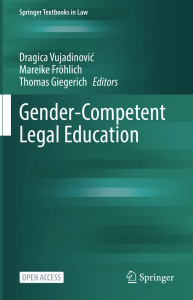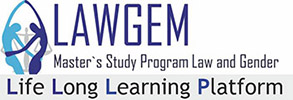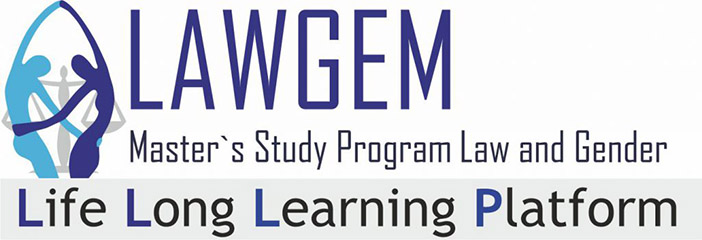Dragica Vujadinovic, Mareike Fröhlich, Thomas Giegerich (eds.), Gender-Competent Legal Education.
One of the main intellectual outputs of the LAWGEM project is the publication of textbook Gender-Competent Legal Education edited by Dragica Vujadinovic, Mareike Fröhlich and Thomas Giegerich (Springer, Cham, XIII + 709 pages). It presents a result of joint work of authors from five European universities –LUMSA University (Italy), Department of Law, Universidad de Cadiz (Spain), Orebro University, School of Law, Psychology and Social Work (Sweden), Saarlandes University, Europa-Institut (Germany), and University of Belgrade Faculty of Law (Serbia). Textbook reflects all relevant fields of legal education of the curriculum for the master’s study program “Law and Gender”. This open access textbook provides an overview of gender issues in all areas of law, including sociological, historical and methodological issues.
Written for students and teachers around the globe, it is intended to provide both a general overview and in-depth knowledge in the individual areas of law. Relevant court decisions and case studies are supplied throughout the book.
Male-dominated law and legal knowledge essentially characterized the whole of pre-modern history in that the patriarchy represented the axis of social relations in both the private and public spheres. Indeed, modern and even contemporary law still have embedded elements of patriarchal heritage, even in the secular modern legal systems of Western developed countries, either within the content of legislation or in terms of its implementation and interpretation. This is true to a greater or lesser extent across legal systems, although the secular modern legal systems of the Western developed countries have made great advances in terms of gender equality. The traditional understanding of law has always been self-evidently dominated by men, but modern law and its understanding have also been more or less “malestreamed.” Therefore, it has become necessary to overcome the given “masculinity” of legal thought. In contemporary legal and political orders, gender mainstreaming of law has been of the utmost importance for overcoming deeply and persistently embedded power relations and gender-based, unequal social relations. At the same time and equally importantly, the gender mainstreaming of legal education – to which this book aims to contribute – can help to gradually eliminate this male dominance and accompanying power relations from legal education and higher education as a whole.
You can access the textbook by clicking this link:
https://link.springer.com/content/pdf/10.1007/978-3-031-14360-1.pdf?pdf=button


